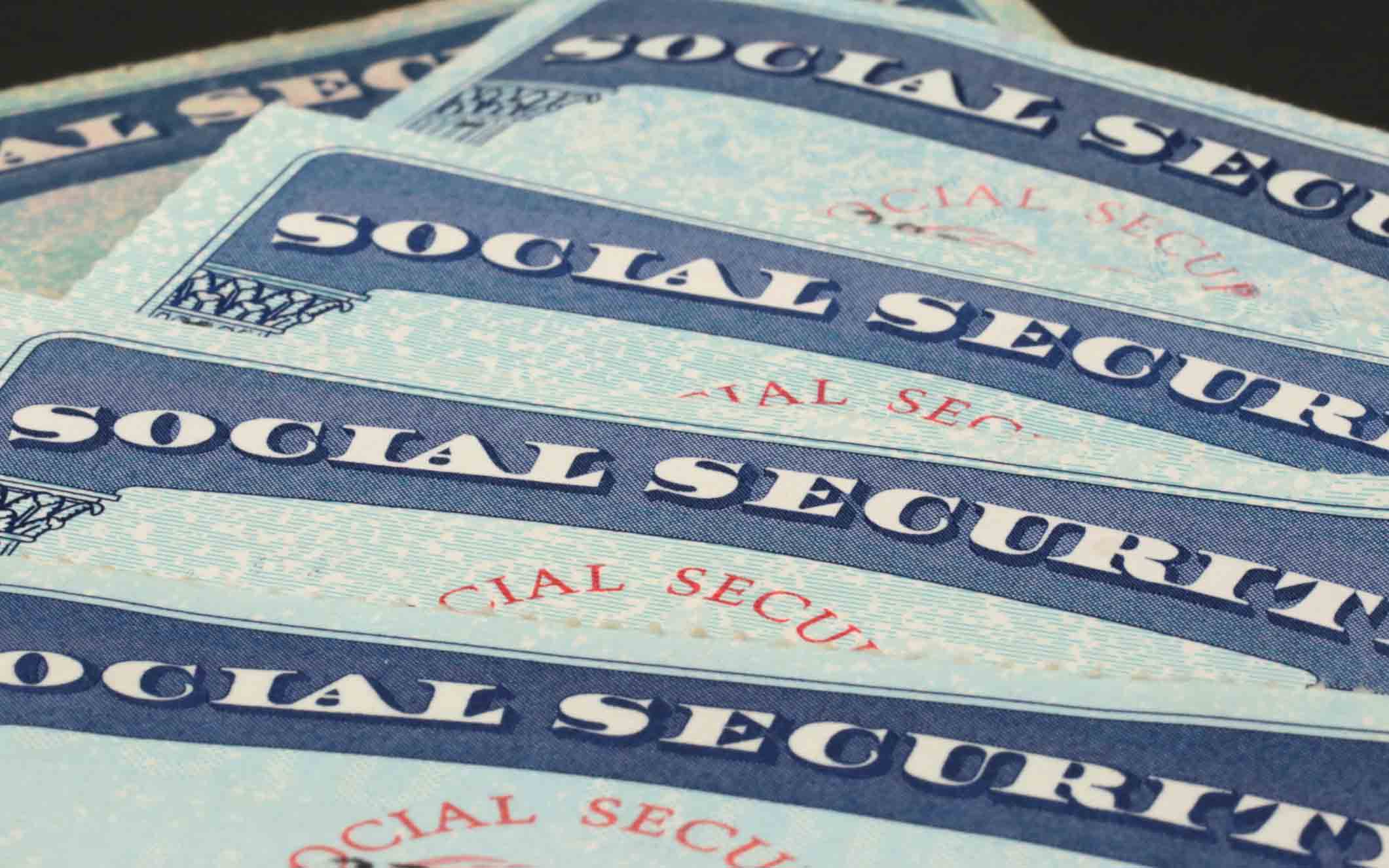5 Ways This Recession Hits Retirees Particularly Hard


Profit and prosper with the best of Kiplinger's advice on investing, taxes, retirement, personal finance and much more. Delivered daily. Enter your email in the box and click Sign Me Up.
You are now subscribed
Your newsletter sign-up was successful
Want to add more newsletters?

Delivered daily
Kiplinger Today
Profit and prosper with the best of Kiplinger's advice on investing, taxes, retirement, personal finance and much more delivered daily. Smart money moves start here.

Sent five days a week
Kiplinger A Step Ahead
Get practical help to make better financial decisions in your everyday life, from spending to savings on top deals.

Delivered daily
Kiplinger Closing Bell
Get today's biggest financial and investing headlines delivered to your inbox every day the U.S. stock market is open.

Sent twice a week
Kiplinger Adviser Intel
Financial pros across the country share best practices and fresh tactics to preserve and grow your wealth.

Delivered weekly
Kiplinger Tax Tips
Trim your federal and state tax bills with practical tax-planning and tax-cutting strategies.

Sent twice a week
Kiplinger Retirement Tips
Your twice-a-week guide to planning and enjoying a financially secure and richly rewarding retirement

Sent bimonthly.
Kiplinger Adviser Angle
Insights for advisers, wealth managers and other financial professionals.

Sent twice a week
Kiplinger Investing Weekly
Your twice-a-week roundup of promising stocks, funds, companies and industries you should consider, ones you should avoid, and why.

Sent weekly for six weeks
Kiplinger Invest for Retirement
Your step-by-step six-part series on how to invest for retirement, from devising a successful strategy to exactly which investments to choose.
There’s no doubt all of us are reeling from the one-two punch of immediate financial losses (layoffs, lower interest rates on our savings and more) and the evaporation of retirement funds for the long term.
But this deep recession is especially hard on retirees, including many seniors living on a fixed income and watching their retirement savings wither.
To be sure, it’s not all doom and gloom for retirees. Congress’ rescue efforts include a provision waiving required minimum distributions from individual retirement accounts and other tax-deferred plans in 2020.
Retirees, consider these special financial challenges this deep recession confronts you with -- and how to fight back.

Less Time to Recover From Portfolio Losses
Seniors who panic or simply need income -- for themselves or perhaps in support of adult children who have lost their jobs -- may sell beaten-down stocks and funds at low prices, inflicting permanent damage on their portfolios and increasing the risk that they’ll outlive their savings.
- That’s what happened during the Great Recession. The Standard & Poor’s 500-stock index lost more than half of its value during the bear market of October 2007 to March 2009, and IRAs and 401(k) plans lost about $2.4 trillion in value just during the final two quarters of 2008. Investors who rode out the downturn recouped their losses in the 11-year bull market, but seniors who took withdrawals before the stock market recovered were left with locked-in losses.
To limit withdrawals from retirement accounts, scale back your spending, and generate extra income.

Dividend Cuts
Whereas most younger investors reinvest their dividends into more shares (at now-discounted prices), many retirees rely on dividend payouts for steady income during their non-working years. Unfortunately, this recession has already prompted dozens of companies, including these prominent names, to cut or suspend their dividends entirely.
To avoid investing in companies that might eventually cut their dividends, evaluate the balance sheet of any stock you own or are considering buying. Cash-rich companies with little debt tend to be able to withstand lean times, while overly leveraged firms can’t.
A good starting point in your dividend-stock search is the Dividend Aristocrats -- companies that have hiked their regular payouts for at least 25 straight years. There are no guarantees in investing, but well-heeled long-term dividend payers are a better bet for stable income than most.

Lower Interest Rates
Are you still putting your faith, and your money, in traditional bank savings accounts? Interest rates on savings accounts have been falling since the Federal Reserve started lowering the federal funds rate last summer. They continue to march downward in the wake of the Fed's March rate cuts (the federal funds rate is now down to zero), which were made in response to the coronavirus crisis.
Yields on certificates of deposit have been tumbling, too. “Unfortunately for savers, we will return to the ultra-low interest earnings that prevailed for years following the 2008 financial crisis,” says Greg McBride of Bankrate.com.
- Savers searching for top yields should look to online banks, which offer significantly higher rates than brick-and-mortar institutions. At DepositAccounts.com, you can see the best interest rates available in your area based on the type of account you’d like to open and the amount you intend to deposit.

A Tiny Social Security COLA in 2021
The Kiplinger Letter is forecasting that the 2021 Social Security cost-of-living adjustment will be below 1%. The COLA is tied to inflation, and the prices of goods and services plummeted in March; prices for travel and any activity that involves large gatherings (even restaurant dining) will continue to be depressed.
The COLA, which will be officially set in October 2020, is down from the 1.6% adjustment that retirees and other beneficiaries received at the start of 2020. That was itself a drop from 2019, when the COLA was 2.8%

A Tougher Time Finding Jobs
Retirees steered back to the workforce by this recession may struggle to find work. If the Great Recession is any guidance, the post-coronavirus economy will be a challenge for older workers. An Urban Institute study published in 2012 and titled Age Disparities in Unemployment and Reemployment During the Great Recession and Recovery noted it took nine months or more for workers age 51 to 60 who got laid off during the Great Recession to get hired. In contrast, it took an average of only six months for unemployed workers age 25 to 34 to find work.
Citing that study, Forbes recently noted “ageism and age discrimination remain real and widespread. The belief that older workers aren’t tech savvy is ingrained in employers, causing a barrier for the new world of telework. What’s more, hiring managers may steer clear of older job candidates, fearful that they may be more susceptible to the coronavirus.”
On their resumes, older workers should include only the most recent and relevant jobs; leave dates off wherever possible. Show that you are willing to undertake training and learn new skills.
In interviews, you might not be asked directly whether you are overqualified or uncomfortable working with younger employees. But raise the topic of age yourself, if you sense it might be an issue. For example, describe your advantages, such as bringing maturity to the job and a willingness to put in extra hours when needed. Cite examples of how you have brought a team together when things got tough. Explain that you'll be a supportive business partner and will use your skills to help the company turn profits. Use the pronoun "we" to show your collegiality.
Profit and prosper with the best of Kiplinger's advice on investing, taxes, retirement, personal finance and much more. Delivered daily. Enter your email in the box and click Sign Me Up.

Bob was Senior Editor at Kiplinger.com for seven years and is now a contributor to the website. He has more than 40 years of experience in online, print and visual journalism. Bob has worked as an award-winning writer and editor in the Washington, D.C., market as well as at news organizations in New York, Michigan and California. Bob joined Kiplinger in 2016, bringing a wealth of expertise covering retail, entertainment, and money-saving trends and topics. He was one of the first journalists at a daily news organization to aggressively cover retail as a specialty and has been lauded in the retail industry for his expertise. Bob has also been an adjunct and associate professor of print, online and visual journalism at Syracuse University and Ithaca College. He has a master’s degree from Syracuse University’s S.I. Newhouse School of Public Communications and a bachelor’s degree in communications and theater from Hope College.
-
 5 Vince Lombardi Quotes Retirees Should Live By
5 Vince Lombardi Quotes Retirees Should Live ByThe iconic football coach's philosophy can help retirees win at the game of life.
-
 The $200,000 Olympic 'Pension' is a Retirement Game-Changer for Team USA
The $200,000 Olympic 'Pension' is a Retirement Game-Changer for Team USAThe donation by financier Ross Stevens is meant to be a "retirement program" for Team USA Olympic and Paralympic athletes.
-
 10 Cheapest Places to Live in Colorado
10 Cheapest Places to Live in ColoradoProperty Tax Looking for a cozy cabin near the slopes? These Colorado counties combine reasonable house prices with the state's lowest property tax bills.
-
 The New Fed Chair Was Announced: What You Need to Know
The New Fed Chair Was Announced: What You Need to KnowPresident Donald Trump announced Kevin Warsh as his selection for the next chair of the Federal Reserve, who will replace Jerome Powell.
-
 January Fed Meeting: Updates and Commentary
January Fed Meeting: Updates and CommentaryThe January Fed meeting marked the first central bank gathering of 2026, with Fed Chair Powell & Co. voting to keep interest rates unchanged.
-
 The December CPI Report Is Out. Here's What It Means for the Fed's Next Move
The December CPI Report Is Out. Here's What It Means for the Fed's Next MoveThe December CPI report came in lighter than expected, but housing costs remain an overhang.
-
 How Worried Should Investors Be About a Jerome Powell Investigation?
How Worried Should Investors Be About a Jerome Powell Investigation?The Justice Department served subpoenas on the Fed about a project to remodel the central bank's historic buildings.
-
 The December Jobs Report Is Out. Here's What It Means for the Next Fed Meeting
The December Jobs Report Is Out. Here's What It Means for the Next Fed MeetingThe December jobs report signaled a sluggish labor market, but it's not weak enough for the Fed to cut rates later this month.
-
 States That Tax Social Security Benefits in 2026
States That Tax Social Security Benefits in 2026Retirement Tax Not all retirees who live in states that tax Social Security benefits have to pay state income taxes. Will your benefits be taxed?
-
 The November CPI Report Is Out. Here's What It Means for Rising Prices
The November CPI Report Is Out. Here's What It Means for Rising PricesThe November CPI report came in lighter than expected, but the delayed data give an incomplete picture of inflation, say economists.
-
 The Delayed November Jobs Report Is Out. Here's What It Means for the Fed and Rate Cuts
The Delayed November Jobs Report Is Out. Here's What It Means for the Fed and Rate CutsThe November jobs report came in higher than expected, although it still shows plenty of signs of weakness in the labor market.
